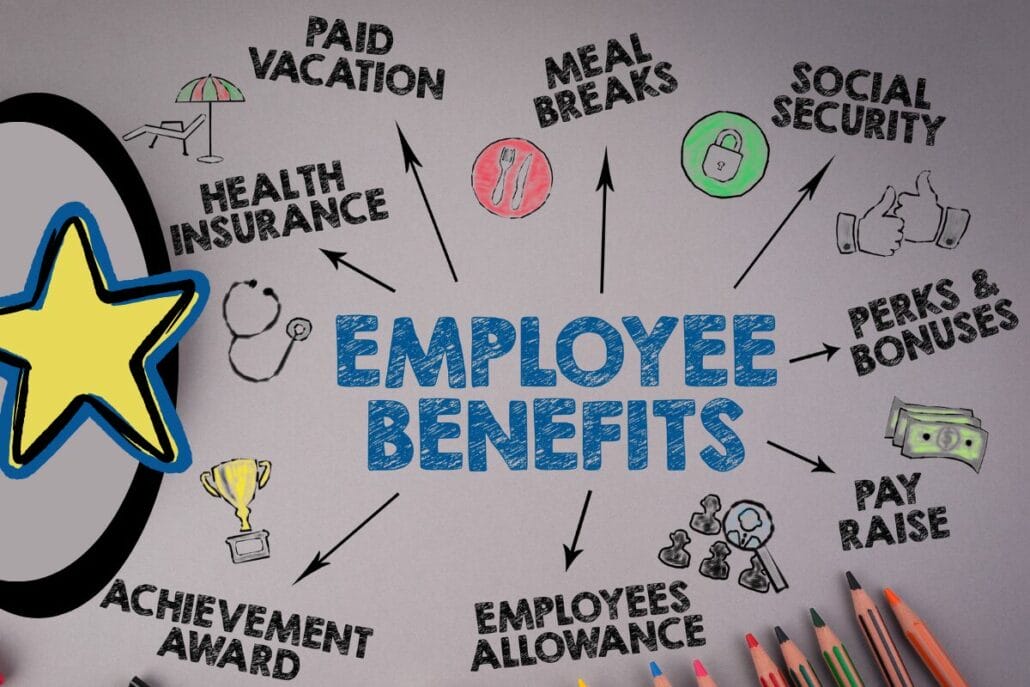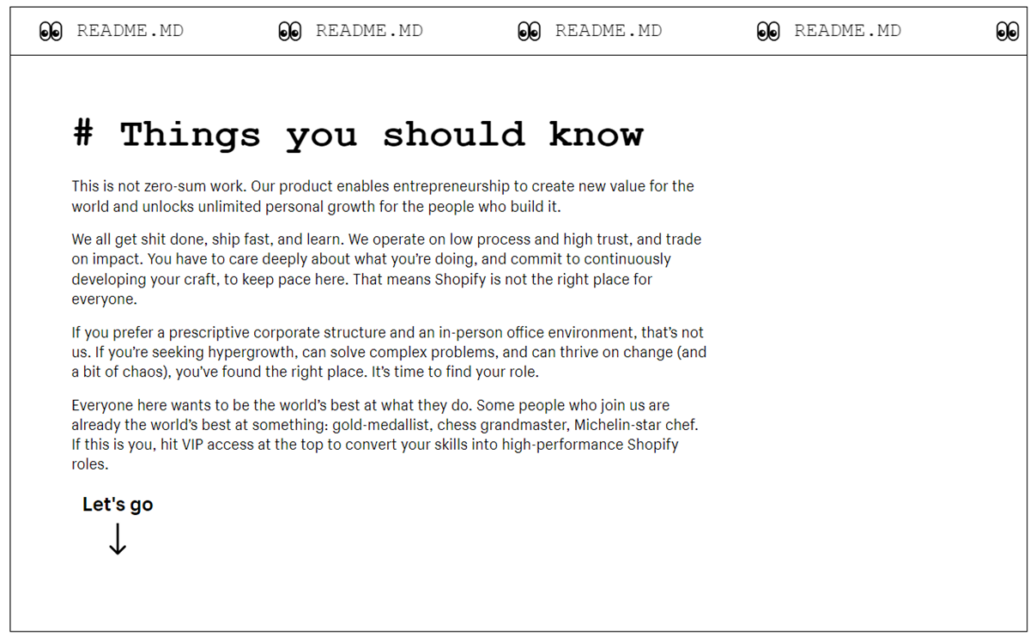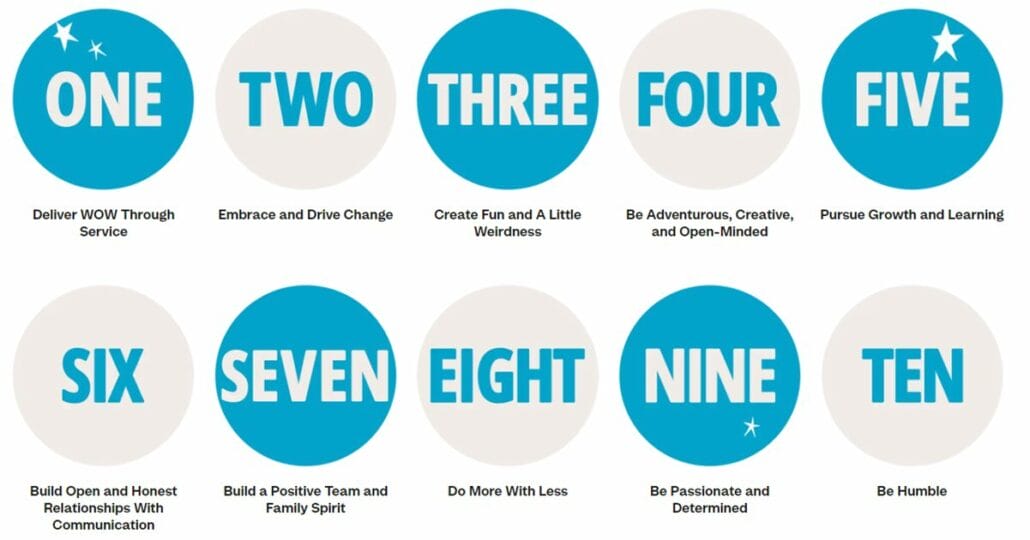An employee value proposition (EVP) is the unique mix of benefits and experiences a company offers to draw in and keep top talent. Beyond pay, it includes career growth, work culture, and work-life balance. A strong EVP is key in today’s job market. This article covers what makes a compelling EVP, its benefits for your organization, and real-life examples of a strong EVP at work.
As you review these steps, try to keep them in mind for both on site and remote employees. The processes and needs may be quite different for workers that do not physically come to the work site.
Key Takeaways
- A well-crafted Employee Value Proposition is vital for attracting and retaining top talent by aligning organizational goals with employee values, fostering trust and mutual respect.
- Key components of a strong EVP include competitive compensation, comprehensive benefits, career development opportunities, a positive work culture, and work-life balance, enhancing overall employee experience and engagement.
- A compelling EVP improves business performance by decreasing employee turnover, enhancing engagement, and aligning with the company’s mission and values, ultimately leading to greater profitability and productivity.
Understanding Employee Value Proposition (EVP)

An Employee Value Proposition is the unique set of offerings provided by an organization to its employees in exchange for their skills, experience, and commitment.
Attracting and retaining top talent hinges on a well-crafted employee value proposition. It aligns the organization’s goals with the values and expectations of its employees, creating a mutually beneficial relationship. When employees feel that their needs and aspirations are met, they are more likely to stay longer and perform better.
Trust and mutual respect between employers and employees are fostered by an effective, honest, and transparent EVP. It’s a key element of an employer brand strategy, marketed to both current and potential employees, and helps define the business’ essence and differentiate it from competitors.
EVP vs Employer Value Proposition vs Employer Brand Strategy
EVP is often thought to stand for employer value proposition; this would make just as much sense, as the employer is proposing the value to employees. The two phrases are generally interchangeable – if someone mentions employer value proposition, they are talking about EVP.
Meanwhile, EVP is an element of employer branding. While work culture and benefits are the primary components of EVP, an employer brand strategy encompasses these elements and the overall marketing strategy of promoting the employer brand across all channels, including consistency across marketing materials and brand content.
Key Components of a Strong EVP

A robust Employee Value Proposition includes:
- Competitive compensation
- A comprehensive benefits package
- Career development opportunities
- A positive work culture
- Work-life balance
These elements attract, retain, and engage current employees effectively.
The overall employee experience is enhanced by each component. A compelling employee value proposition that resonates with what employees value most in an employer can be created by understanding and implementing these key components.
We will now examine each component in detail and provide insights into their contribution to a strong EVP.
Competitive Compensation
Competitive compensation is a foundational element of a strong employee value proposition, playing a significant role in attracting and retaining top talent. A comprehensive compensation package typically includes:
- Base salary
- Bonuses
- Paid time off
- Holiday and overtime pay
- Profit sharing
Companies can make themselves more attractive to potential employees by offering competitive financial compensation within the industry.
Additionally, financial rewards such as salary increases for each completed year, bonuses for exceeding targets, and commissions can significantly enhance the appeal of the compensation package. These incentives not only attract high-caliber candidates but also motivate and retain existing employees by recognizing their hard work and contributions.
Comprehensive Benefits Package

Signaling that the organization values and appreciates its employees’ contributions, a comprehensive benefits package is essential for a strong employee value proposition. Key elements of a benefits package include health insurance, retirement plans, and paid time off for special events such as birthdays or when a particular project was completed exceptionally well. These benefits ensure that employees feel secure and supported in their roles, contributing to their overall well-being.
There are numerous other benefits to consider, including:
- Parental leave options
- Wellness programs
- Pets at work days
- Remote work options, shared jobs, or flex-time
- Paid mobile phone plan
- Company vehicle use
- Free employee lunches
- On-site snacks and beverages
These unique benefits can further enhance the employee experience, promoting a healthy work-life balance and demonstrating the organization’s commitment to its employees’ personal and professional growth.
Career Development Opportunities
Being a key component of a strong EVP, career development opportunities are vital for employee growth. Providing clear career paths, training programs, conference attendance, and personal growth prospects help employees understand their potential growth within the company and boost retention rates.
Organizations can demonstrate their commitment to employee development by offering tuition reimbursement or sponsorship for further education and implementing mentoring and coaching programs. These initiatives not only enhance employees’ skills but also show that the company is invested in their long-term success.
Positive Work Culture
A large part of an employee value proposition is the value that employees perceive they gain beyond just a paycheck. Attracting and retaining the right talent depends on a positive work culture. In fact, a study found that 77% of job seekers considered a company’s culture before even looking for a job. A healthy work culture fosters:
- Collaboration
- Innovation
- Diversity
- Inclusion
- Creating an environment where employees feel valued and respected.
A strong organizational culture aligns with the company’s values and enhances employee well-being.
Work culture is ultimately determined by how things actually are at your organization, not how you say they are or want them to be. Therefore, it’s important for companies to genuinely live their values and create a work environment that reflects their commitment to a positive and inclusive culture.
Work-Life Balance
Work-life balance refers to the relationship between professional responsibilities and important aspects of life outside of work. An attractive EVP should incorporate a healthy balance that resonates with the desired candidates.
Flexible work arrangements and wellness programs can greatly contribute to achieving this balance, making employees feel more satisfied and engaged in their roles. Remote work options, in particular, are highly valued across most demographics and are a crucial part of modern work strategy.
By offering non-monetary benefits such as wellness programs, flexible work arrangements, or on-the-job travel, companies can promote a healthier work-life balance and enhance the overall employee value proposition.
The Importance of a Compelling EVP

In today’s competitive job market, a good Employee Value Proposition (EVP) is crucial for attracting and retaining top talent. A strong employee value proposition improves a company’s ability to attract high-caliber candidates and retain them by offering a combination of benefits, rewards, and experiences that resonate with employees’ values and expectations.
Moreover, a compelling EVP enhances employer branding, making the company a desirable workplace for top candidates and improving overall business performance. Investing in an EVP brings tangible benefits, such as boosting performance, reducing turnover, and meeting business objectives.
Decreased Annual Employee Turnover
Creating an environment where employees feel valued and connected to the company’s values reduces annual employee turnover, an outcome of a strong EVP. Organizations with a strong EVP can decrease annual employee turnover by up to 69%, significantly reducing hiring and training costs.
Candidates attracted by an organization’s values are more likely to stay longer, thereby reducing turnover and hiring expenses. Additionally, a compelling EVP can increase new hire commitment by nearly 30%, further enhancing employee retention and satisfaction.
Enhanced Employee Engagement
Employee engagement increases when a well-defined EVP fosters a sense of purpose and commitment among them. Employees who feel connected to their company’s work culture are four times as likely to be engaged at work as other employees.
Implementing employee recognition programs and other initiatives that align with the EVP can boost employee morale and engagement, creating a more productive and motivated workforce.
Improved Business Performance
A strong EVP will attract candidates that fit the company culture, values, and mission. This will result in more satisfied, engaged, and productive employees with less turnover.
Not only do engaged employees improve retention rates, but according to Gallup, have the potential to increase profitability by 23% and boost customer loyalty by 10%. These findings demonstrate just how much the right team can have an impact on business performance.
A well developed EVP will also lead to finding the right candidates more quickly, reducing recruitment and training costs and decreasing turnover. As a result, a robust EVP can lead to significant cost savings and improved business performance.
Steps to Develop an Effective EVP
Several critical steps are involved in creating a compelling Employee Value Proposition (EVP). First, take inventory of the current EVP by assessing what compensation and benefits are currently offered, the existing company culture, values, and mission, and the types of people who are current employees at the organization. This initial assessment will help identify gaps between the current EVP and employee expectations.
Once you have determined where your company’s EVP is now and where you want it to be, you can develop a clear strategy to get there. Align the EVP with the organization’s overall mission, vision, and values, and communicate it concisely and compellingly.
Identify Unique Company Attributes
Successful organizations are taking note of the importance of an effective EVP, and advertising it readily on all channels. As a result, attracting potential employees is reliant on identifying unique company attributes. What makes your organization’s EVP stand out for others?
Reflecting on your organization’s mission, values, culture, and strategic goals can help determine what makes your company unique and stand out in the job market. Review your existing employer branding for elements that really pop.
Whether it’s highlighting your organization’s sustainable practices or community involvement, your company’s unique characteristics can be significant selling points for potential candidates, further enhancing your employer brand.
Gather Employee Feedback
One of the best ways to find out what brings your employees value is to ask them!
What employees value most in an employer can be better understood through conducting employee surveys, focus groups, and interviews. Collecting data from employees using satisfaction, engagement, stay, and exit surveys can provide valuable insights into their preferences and expectations.
In addition, having clear and open lines of communication between employees and HR will promote ongoing feedback, ensuring that the EVP remains relevant and effective over time.
Align with Company Mission and Values

The success of the EVP hinges on its resonance with the organization’s overall mission, vision, and values. When employees align with a company’s vision and values, they are more motivated to contribute to its success.
Review the company’s vision and values and assign each element of your EVP to each value or vision statement. If any part of the mission statement or values doesn’t have an element of the EVP that reflects them, seek out ways to represent those parts of your core values with the EVP.
Communicate Your EVP
The success of the EVP depends on effectively and authentically conveying it through various communication channels like a company’s website, social media channels, job listings, etc. Employee testimonials can add credibility and authenticity to your EVP messaging, making it more impactful to job candidates.
A well-communicated EVP helps manage employees’ expectations, boosting motivation and productivity. The best way to communicate your EVP is to live it. When companies are authentic in their EVP, stakeholders will be a representation of it.
Measuring the Success of Your EVP

Measuring the success of your Employee Value Proposition (EVP) using both quantitative and qualitative metrics is crucial to ensure its effectiveness. Quantitative metrics like retention rates, engagement surveys, productivity metrics, and recruitment metrics provide concrete data on how well the EVP is performing. Qualitative measures, such as employee feedback and employer brand perception, offer insights into the more subjective aspects of the EVP.
Regularly analyzing these metrics will help you understand the impact of your EVP on attracting, engaging, and retaining talent. This ongoing process allows for adjustments and improvements, ensuring that your EVP remains relevant and effective in a dynamic job market.
Using Quantitative Metrics
Valuable insights into the effectiveness of your EVP can be provided by tracking key performance indicators (KPIs) such as:
- Employee satisfaction scores
- Cost per hire
- Turnover rates
- Online reviews
Utilizing internal tools like Applicant Tracking Systems (ATS) or Human Resource Information Systems (HRIS) can help gather and analyze this data.
Employee retention rate, the length of time it takes to fill a position, and the number of resources allocated with each hire are all important metrics to consider. These metrics can help gauge the stability and satisfaction within the workforce, providing a clear picture of how well your EVP is performing.
Gathering Qualitative Feedback from Existing Employees
Valuable qualitative feedback can be gained by:
- Gauging employer brand sentiment through social media engagement
- Reviewing company rating sites
- Conducting regular employee surveys
- Establishing open lines of communication between HR and employees
These methods are essential for capturing ongoing feedback.
Focus groups and exit interviews can also provide insights into employees’ experiences and perceptions of the EVP. Documenting and reporting this feedback ensures that any necessary adjustments can be made to keep the employee value proposition relevant and effective.
Successful Employee Value Proposition Examples
Strong EVPs that resonate well with employees have been successfully implemented by many notable companies. Let’s take a look at some employee value proposition examples.
Trader Joe’s
Trader Joe’s is known for breaking the mold as a grocery store chain, and it continues that trend by offering significant value to its employees. In addition to more traditional benefits like competitive pay, health care, and a retirement plan, Trader Joe’s calls out the more unique value proposition elements, including:
- A significant employee discount
- In-store tastings
- Scholarship programs
- Employee assistance programs
- Relocations and transfers
These added demonstrate what makes Trader Joe’s unique, and makes it clear to potential employees how their job will fit into a balance of life and work.
Shopify
Shopify’s careers page begins with a unique disclaimer that reads as raw and authentic, stating “If you prefer a prescriptive corporate structure and an in-person office environment, that’s not us. If you’re seeking hypergrowth, can solve complex problems, and can thrive on change (and a bit of chaos), you’ve found the right place.”

Shopify goes on to highlight it’s “digital-first” remote work environment and cites personal growth as a core value, promising constant learning for its team. This focus on independence and personal development has made Shopify a highly desirable workplace.
Zappos
Zappos is arguably the authority on Employee Value Proposition; myriad case studies have been written on the company’s work culture centricity, including one from Stanford Business School that describes a focus on “culture and employee happiness.”
In fact, the Zappos website’s About Us page explains the company’s process for developing part of it’s EVP, stating, “Zappos polled employees on what they thought the company’s core values should be. Hundreds of ideals were submitted, which resulted in 37 foundational themes. This list was further narrowed down, and on February 14, 2006, the Core Values were introduced.”

Zappos is an example of an organization that puts it’s EVP into practice every day, living and breathing a positive work culture.
These examples showcase how aligning the EVP with company values and employee needs can create a compelling and successful EVP.
Employee Value Proposition: A Dynamic Strategy
More than just a set of benefits, a great Employee Value Proposition:
- Is a compelling, authentic, and relevant narrative that resonates with what employees value most, including strong employee value propositions
- Focuses on the key benefits and experiences that a company can offer and communicates these benefits clearly and concisely
- Must be lived and breathed by the organization daily
An environment where employees feel valued, engaged, and motivated can be created by focusing on the key components of a strong EVP and aligning them with your company’s mission and values. This not only helps in attracting and retaining top talent but also drives overall business success.
And don’t forget, an employee value proposition is dynamic. While it’s important to develop a strong EVP, it will ultimately be shaped by the day-to-day culture and benefits that make up an organization. Companies must continuously evolve their EVP to reflect changes in the workforce and market conditions.
Developing and maintaining an effective EVP requires ongoing assessment and alignment with company values and mission. By measuring the success of your EVP through quantitative and qualitative metrics, you can ensure that it remains relevant and effective. Ultimately, a great EVP not only enhances employee satisfaction and retention but also drives overall business performance.


